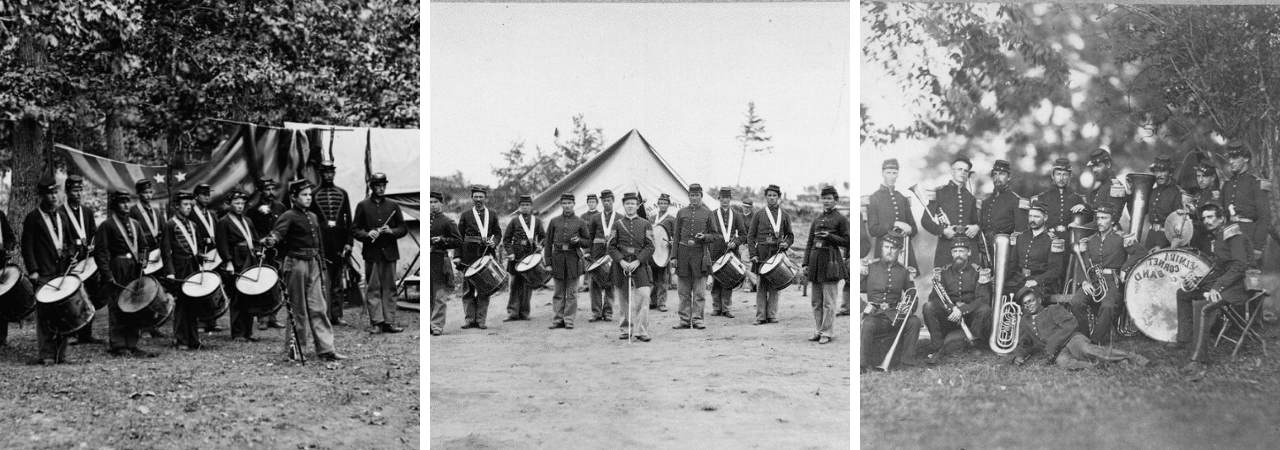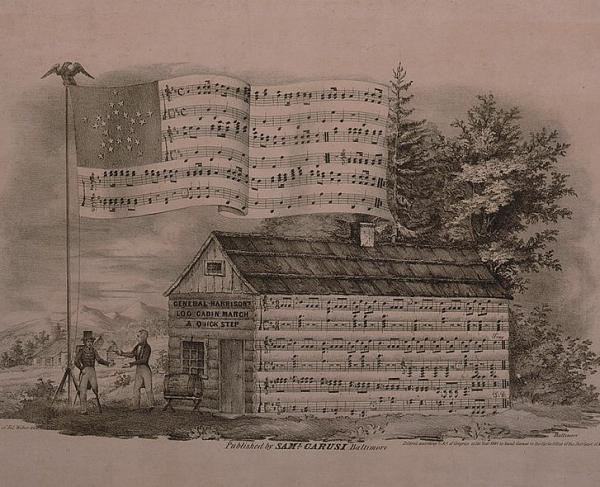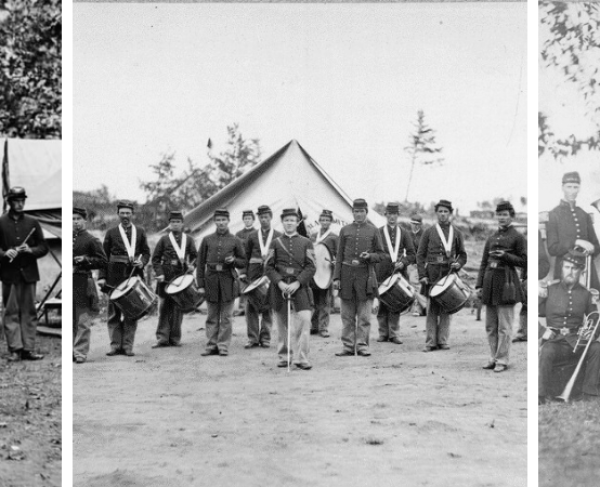
A song of romance, and love letter to the instrument itself, “Ring the Banjo '' was a song composed to honor America’s instrument. Created by Stephen Foster in 1851, the song would become a hit of the Civil War era. The tackhead and minstrel banjos were kings during the mid-nineteenth century, and were adaptations of the original African instrument and usually played in low D tuning (very different from modern banjos).
“Good bye, jolly old Yankee banjo! Rattle on, gayly, and play all the old tunes! It is singular how new and delightful they are—what a world of mirth they contain. . . .”
John Esten Cooke, formerly of General Stuart’s Staff
As “America’s greatest composer” matured in his career, so shifted his political opinions. Though at first glance, the narrative seems to fall into the classic minstrel trope of a happy enslaved person who does not want to leave the plantation, the final verse cements that the narrator will “make some money,” and “come (back) again some day.” The freedman will “work his way,” as the song states, and earn his own fortune before returning to his love. This is a far more progressive view than is often seen in Foster’s pieces and is largely overlooked.
Frederick Douglass spoke about lyrics such as those found in Foster’s song and their relation to Black culture:
I have often been utterly astonished, since I came to the north, to find persons who could speak of the singing, among slaves, as evidence of their contentment and happiness. It is impossible to conceive of a greater mistake. Slaves sing most when they are most unhappy. The songs of the slave represent the sorrows of his heart; and he is relieved by them, only as an aching heart is relieved by its tears. At least, such is my experience.
I have often sung to drown my sorrow, but seldom to express my happiness. Crying for joy, and singing for joy, were alike uncommon to me while in the jaws of slavery. The singing of a man cast away upon a desolate island might be as appropriately considered as evidence of contentment and happiness, as the singing of a slave; the songs of the one and of the other are prompted by the same emotion.
In the Nutmeggers’ recordings featured on “In High Water: Songs of the Civil War,” we hope to do justice to those musicians who came before us, and especially those who gave their all, that we might see “a new birth of freedom.” We seek to honor the spirit and humanity of those brave souls who fought so that this nation might live. This is their music, and these are their stories.
Sources
- Wearing of the Gray: Being Personal Portraits, Scenes and Adventures of the War by John Esten Cooke, formerly of General Stuart's Staff
Douglass, Frederick. Narrative of the Life of Frederick Douglass, an American Slave. Written by Himself. 1845.
“Ring the Banjo.” Traditional Tune Archive, tunearch.org/wiki/Annotation:Ring_the_Banjo.
“Ring, Ring the Banjo.” Song of America, Library of Congress, 2024, songofamerica.net/song/ring-ring-the-banjo/.
“Stephen Foster.” Songwriters Hall of Fame, www.songhall.org/profile/Stephen_Foster.

